
A digital synthesizer is a synthesizer that uses digital signal processing (DSP) techniques to make musical sounds. This in contrast to older analog synthesizers, which produce music using analog electronics, and samplers, which play back digital recordings of acoustic, electric, or electronic instruments. Some digital synthesizers emulate analog synthesizers; others include sampling capability in addition to digital synthesis.
A music sequencer is a device or application software that can record, edit, or play back music, by handling note and performance information in several forms, typically CV/Gate, MIDI, or Open Sound Control, and possibly audio and automation data for digital audio workstations (DAWs) and plug-ins.

The Fairlight CMI is a digital synthesizer, sampler, and digital audio workstation introduced in 1979 by Fairlight. It was based on a commercial licence of the Qasar M8 developed by Tony Furse of Creative Strategies in Sydney, Australia. It was one of the earliest music workstations with an embedded sampler and is credited for coining the term sampling in music. It rose to prominence in the early 1980s and competed with the Synclavier from New England Digital.
A music workstation is an electronic musical instrument providing the facilities of:

A sampler is an electronic musical instrument that records and plays back samples. Samples may comprise elements such as rhythm, melody, speech, sound effects or longer portions of music.
Fairlight is a digital audio company based in Sydney. In 1979, it released its Series I Fairlight CMI, one of the earliest digital audio workstations (DAWs) with a digital audio sampler. Their subsequent Series II and III CMIs featured a graphic sequencer known as Page R, during a time when most computerised music sequencers required coding skills.
An orchestra hit, also known as an orchestral hit, orchestra stab, or orchestral stab, is a synthesized sound created through the layering of the sounds of a number of different orchestral instruments playing a single staccato note or chord. The orchestra hit sound was propagated by the use of early samplers, particularly the Fairlight CMI where it was known as the ORCH5 sample. The sound is used in pop, hip hop, jazz fusion, techno, and video game genres to accentuate passages of music.

The Emulator is a series of digital sampling synthesizers using floppy-disk storage that was manufactured by E-mu Systems from 1981 until 2002. Although it was not the first commercial sampler, the Emulator was innovative in its integration of computer technology and was among the first samplers to find widespread usage among musicians. While costly, its price was considerably lower than those of its early competitors, and its smaller size increased its portability and, resultantly, practicality for live performance. The line was discontinued in 2002.
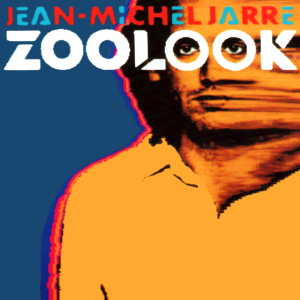
Zoolook is the seventh studio album by French electronic musician and composer Jean-Michel Jarre, released in November 1984 by Disques Dreyfus. Much of the music is built up from samples of singing and speech in 25 different languages recorded and edited in the Fairlight CMI digital sampling synthesizer. The album spawned two singles: the title track and "Zoolookologie".
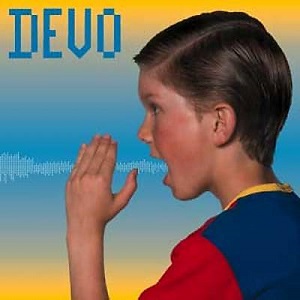
Shout is the sixth studio album by American new wave band Devo, released on October 8, 1984 by Warner Bros. Records.
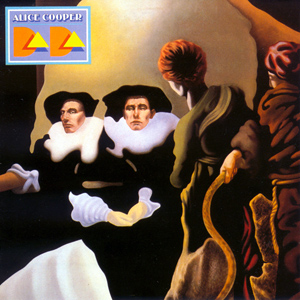
DaDa is the eighth solo studio album by American rock singer Alice Cooper, released on September 28, 1983, by Warner Bros. Records. DaDa would be Cooper's final studio album until his sober re-emergence in 1986 with the album Constrictor.

"Sign o' the Times" is the lead single from American musician Prince's 1987 studio album of the same name. The song was originally intended for two separate Prince studio albums meant to be released in 1986, both shelved: Dream Factory and Crystal Ball. Prince performed all vocals and instruments on the song. "Sign o' the Times" was reportedly written and composed on a Sunday, when Prince usually wrote his most introspective songs.
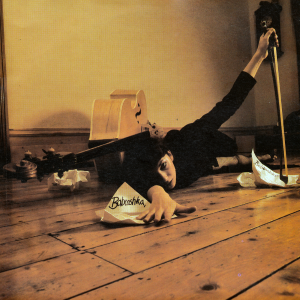
"Babooshka" is a song by English singer, songwriter Kate Bush, taken from her third studio album Never for Ever (1980). Released as a single in June 1980, it spent 10 weeks in the UK chart, peaking at number five. It was an even bigger hit in Australia, where it peaked at number two and was the 20th best-selling single of the year. It also peaked at number 2 in France on 28th Dec. 1980.
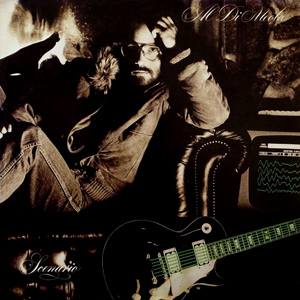
Scenario is an album by jazz guitarist Al Di Meola, released in 1983. Musicians include keyboardist Jan Hammer, bassist Tony Levin and drummers Bill Bruford and Phil Collins.

How Men Are is the third studio album by English synth-pop band Heaven 17, released on 24 September 1984 by Virgin Records. The album peaked at No. 12 in the UK and was certified Silver by the BPI in October 1984.
Jonathan Edward Stephen "J. J." Jeczalik is a British electronic musician/record producer, co-founder of the electronic music group the Art of Noise. He taught IT at Oxford High School until his retirement in 2013.

Sidewalk is the third studio album by Australian rock band Icehouse, released on 26 June 1984 by Chrysalis Records and Regular Records. It peaked at No. 8 on the National albums chart. Founding member Iva Davies used the Fairlight CMI digital sampling synthesizer on this more sombre and reflective album. This is the first studio album that bassist Guy Pratt worked on as a member of the band. Pratt would later become a session musician, and go on to work with artists such as Pink Floyd, Roxy Music, David Bowie, Madonna and Michael Jackson.

In sound and music, sampling is the reuse of a portion of a sound recording in another recording. Samples may comprise elements such as rhythm, melody, speech, or sound effects. A sample can be brief and only incorporate a single musical note, or it can consist of longer portions of music, and may be layered, equalized, sped up or slowed down, repitched, looped, or otherwise manipulated. They are usually integrated using electronic music instruments (samplers) or software such as digital audio workstations.
Peter Vogel is an Australian inventor and technologist known for developing the Fairlight CMI.
Mars Lasar is a German-born keyboardist and composer, raised in Australia. Predominantly new-age, his music also contains elements of electronica, jazz, pop, world, and rock. Lasar's music has appeared on television and in films; one notable example is music from his first album, Olympus, being used for CBS's coverage of the Olympic Games in Albertville, France in 1992. He has worked with other artists including Seal, Herbie Hancock, Jon Stevens, John Sykes, and t.A.T.u. Many of his album covers feature his own artwork.













